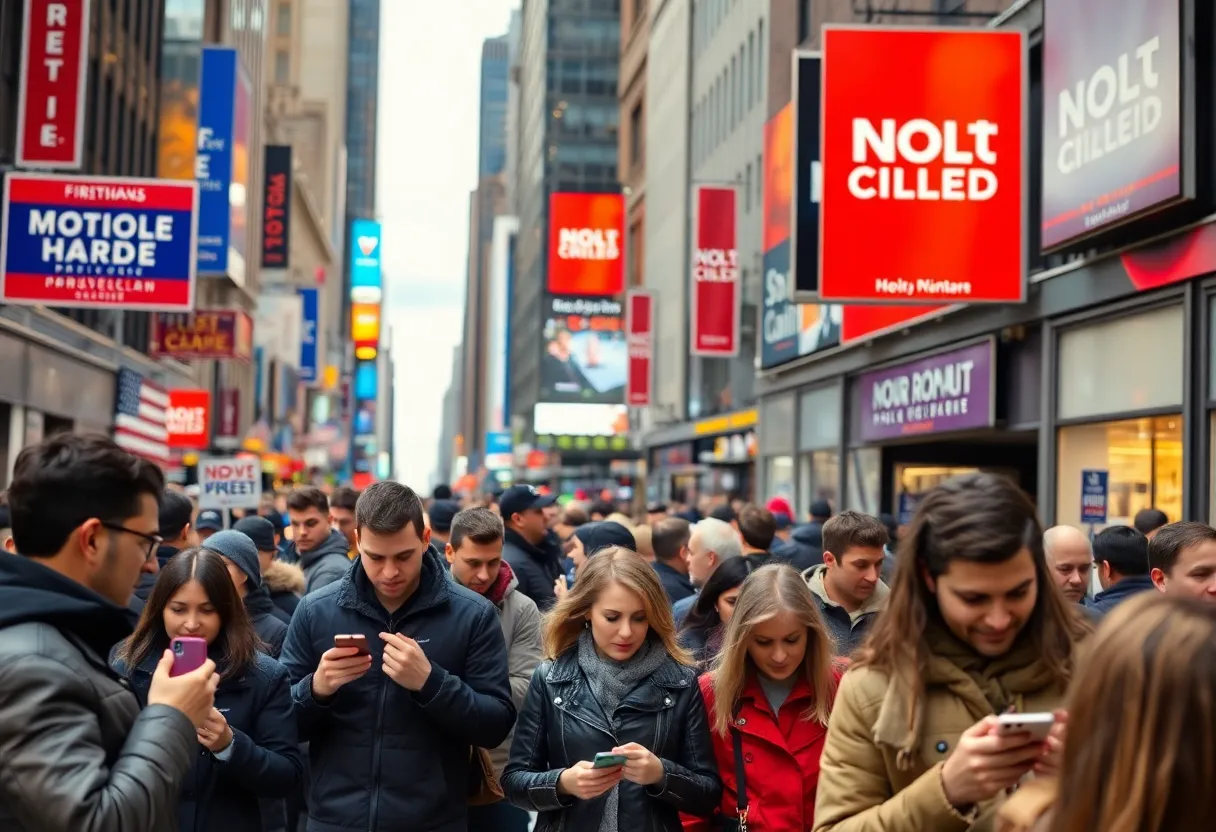

Residents of New York City connect online while navigating the electoral landscape during election week.
Article Sponsored by:
Real Internet Sales is a digital marketing agency located in Columbia, South Carolina. We specialize in website design and development, SEO, social media management, online advertising, AI integration, and workflow automation. Our services also include affiliate marketing and digital strategy.
Real Internet Sales also offer specialized programming for real estate firms, using IDX and RETS feeds to automatically populate MLS properties on their websites for improved property listings and sales. We also work with clients in the restaurant, tourism, and e-commerce industries to enhance their digital presence and streamline operations.
As the vibrant city of New York gears up for the upcoming U.S. presidential election, agencies and creators within the marketing world are taking a thoughtful approach. With just days until Americans cast their votes, many brands are hitting the pause button on their advertising campaigns or rethinking their content strategies. It’s not that everyone is going completely silent, but a careful adjustment is definitely in the air.
According to experts, timing is everything when it comes to posting content during this politically charged period. Amy Luca, who leads social strategies at a major agency, shared that the current sentiment is one of “wait and see.” In her words, “We live in a real-time brand world, which means we have to be nimble enough to react or contract depending on what is going on in the world.”
Indeed, with surveys showing that 75% of Americans view social media as their main source for election news, it’s crucial for brands to navigate this landscape wisely. Interestingly, the younger generations—Gen Z and millennials—are even more influenced by social media, with about 77% and 78% respectively, admitting that their opinions on the election have been shaped by their social feeds.
While some creators plan on taking a brief hiatus during the election week, others are anticipating the best way to engage their audiences amidst the electoral buzz. For instance, Randy Gudiel from a prominent marketing agency pointed out that social media can be a valuable outlet for brands aiming to reach consumers who might be looking for a “break from the election noise.”
Roee Zelcer, CEO of a popular creator platform, suggests that brands should consider a small break both before and after the election but recommend a strong return with content that resonates with the emotional climate of the post-election world.
With varying opinions on the need to limit social media use leading up to the election, some creators remain committed to posting political content. A report found that 37% of influencers are planning to urge their followers to vote while 35% feel it’s essential to spread awareness on political issues. Whether to pause or continue posting ultimately depends on the creator and the nature of their brand.
Some agencies, like Open Influence, are choosing the cautious route by halting influencer campaigns during election week. Joey Chowaiki, a co-founder at the agency, noted, “We don’t have any campaign posts scheduled for Election Day itself, as we understand the potential for political noise to overshadow other content.” They are prepared to pivot their strategies based on how the situation unfolds.
As brands reconsider their ad spending, Zach Ricchiuti from a digital agency highlighted that numerous clients are advised to cut back on ads leading up to the election. Given the influx of political spending on platforms like Meta and YouTube, marketing costs are soaring, affecting engagement rates for brands.
“Platforms are seeing a massive influx of political ad spending,” noted Ricchiuti, mentioning that it could become increasingly challenging for brands to stand out in the crowded feed of political commentary.
What happens after the ballots are cast? Depending on the outcome, brands will need to be ready. For instance, if a more progressive candidate wins, opportunities for brands to promote a message of optimism will likely arise. However, companies may need to tread lightly and adopt a more subdued approach if a polarizing figure is victorious.
The essence of post-election strategy can be summed up in a three-pronged approach articulated by Luca: predict, protect, and promote. Preparing for various scenarios is crucial to ensure brands maintain relevance and connection with their audiences, regardless of who ends up in office.
The forthcoming election week will undoubtedly shape the media landscape in the lead-up to the holiday season. Marketers are navigating these challenging waters by adapting their approaches to ensure they stay relevant and connected to their audiences, all while keeping a finger on the pulse of public sentiment. As Luca emphasized, “If you have to ask if you should post, you probably shouldn’t.”
What will unfold over the coming days is uncertain, but one thing is clear: the relationship between brands, content creators, and the rapidly changing world of social media is as important as ever.

7001 St Andrews Rd #329 ,
Columbia, SC 29212,
United States
Phone: (+1) 803 708 5514
News Summary In a significant policy shift, the Trump administration is set to revoke the…
News Summary On April 5, thousands are expected to protest against President Trump at the…
News Summary Farmers across the nation are relieved as the USDA announces the release of…
News Summary The Trump administration has replaced Gen. Timothy Haugh, the NSA director, and his…
News Summary President Trump has initiated a significant trade war with new tariffs, introducing a…
News Summary The Irmo community mourns the loss of Orris Bickley, a long-time resident cherished…